Big Beasts Still Alive After First Round of World Cup in Khanty-Mansiysk
Round 1 Report for World Cup 2019
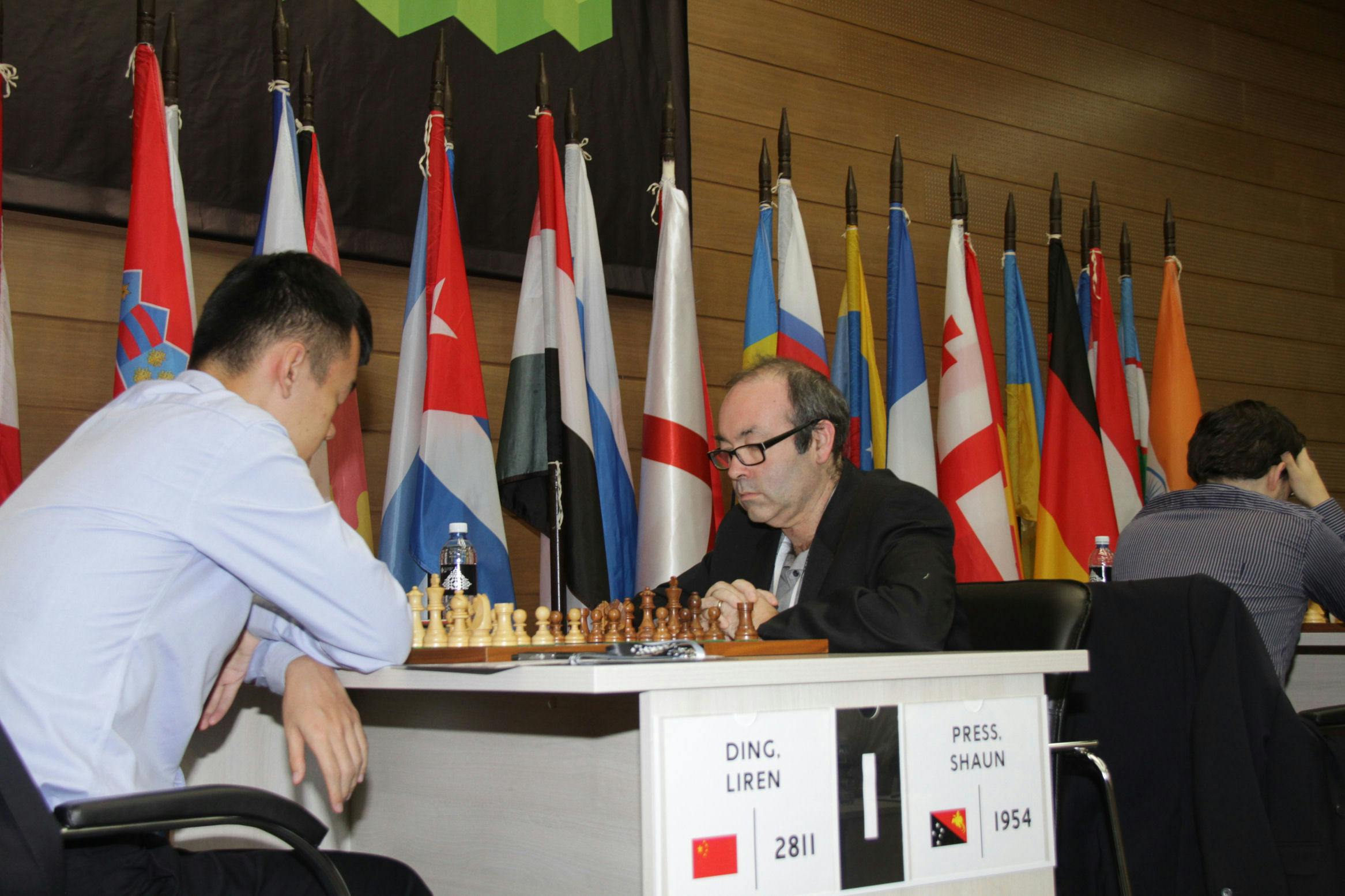
The majority of the world’s elite players descended on Khanty-Mansiysk this week to compete in the World Cup and after just three days, half of the 128 competitors are already eliminated.
For many of the players, visiting the isolated Siberian city surrounded by forests and made wealthy thanks to mining and oil nearby, is not a new experience. Remarkably, almost every top player of the modern era has competed in Khanty-Mansiysk, whether it be at the 2010 Chess Olympiad, the 2014 Candidates Tournament, the 2017 World Teams Championship or one of the five(!) World Cups hosted here.
The World Cup can be viewed as the replacement for the old Interzonals. Anyone in the world can qualify for the tournament through Zonals and Continental Championships and a top placing takes you through to the Candidates tournament (to be held in March-April 2020 in Ekaterinburg, a mere 15 hour bus trip from Khanty-Mansiysk). The tournament format is knock-out mini-matches of two classical games, with pairs of tiebreakers at faster and faster time limits should the match be tied.
The announcement of the Candidates tournament venue came at the spectacular opening ceremony, which featured Siberian dancing, a hyperactive brass band, ballet involving a pair of clockwork dolls battling the devil, black light theatre, a (deliberately) comedic drawing of lots, and speeches by FIDE President Arkady Dvorkovich and Russian Sports Minister Pavel Kolobkov.
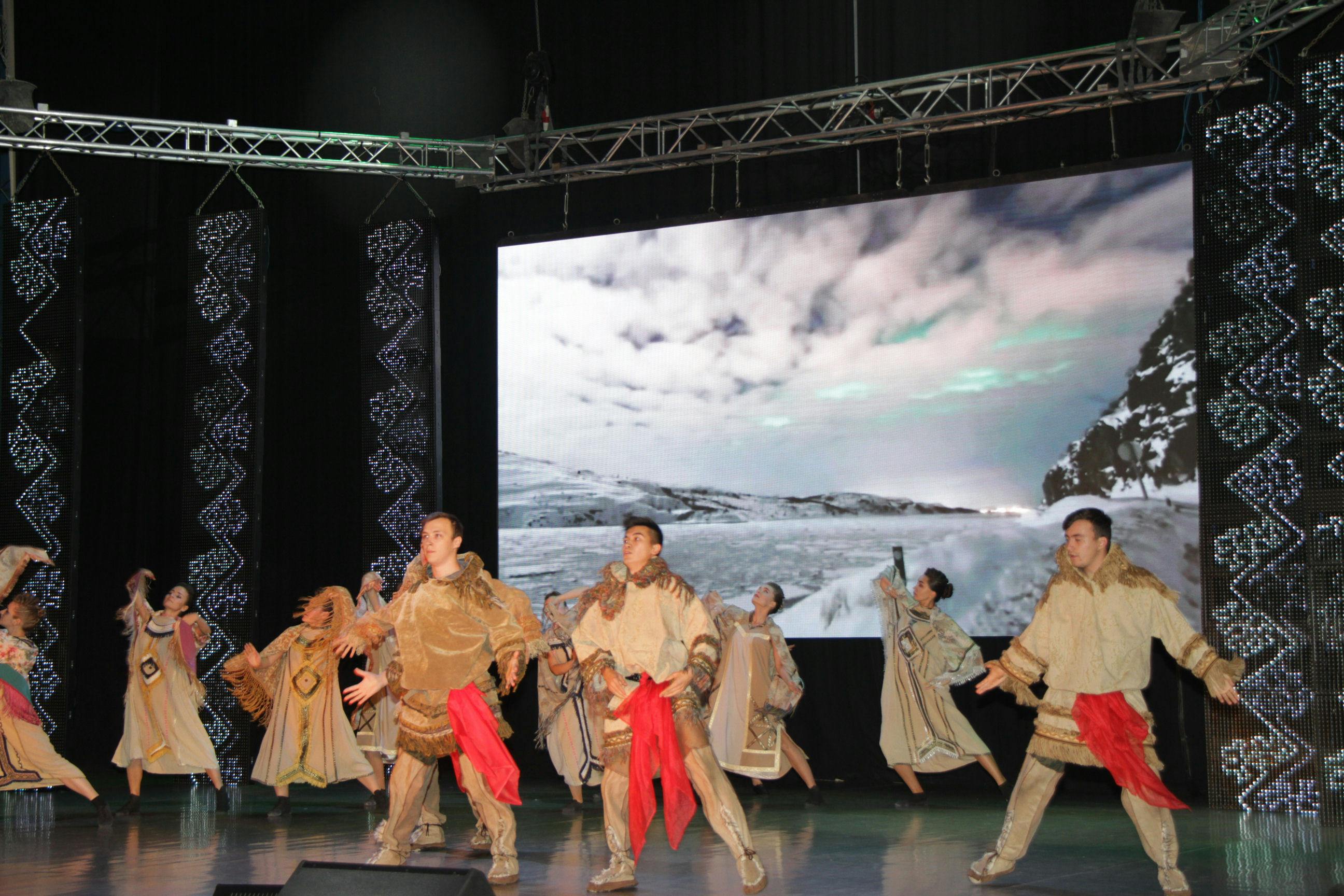
Dancers in the opening ceremony. Photo: Cathy Rogers
Oddly, the guests were serenaded on and off stage at the opening ceremony to the strains of the Earth, Wind and Fire classic ‘Boogie Wonderland’. At least this seemed odd, until experiences at restaurants around the city made me realise that Khanty-Mansiysk is indeed a place where disco never died. Earlier in the day, the two speakers had inspected a children’s chess art exhibition at a museum across the road from the World Cup venue. The museum’s first floor is devoted to the work of V.A. Igoshev, whose works pictured the challenges and highlights of life in Siberia while the second floor chess display featured posters of earlier Khanty-Mansiysk tournaments, king and queen costumes, elaborate chess sets, including one local set of Khanty people in fabric, an Alice in Wonderland display, graphic chess prints, as well as the children’s drawings. The visit went well until Dvorkovich and Kolobkov were asked to make their own artistic contribution, but their combined effort turned out to be, inadvertently, not suitable for the eyes of the children at the exhibition, who fortunately were caught up with creating new chess drawings and playing chess.
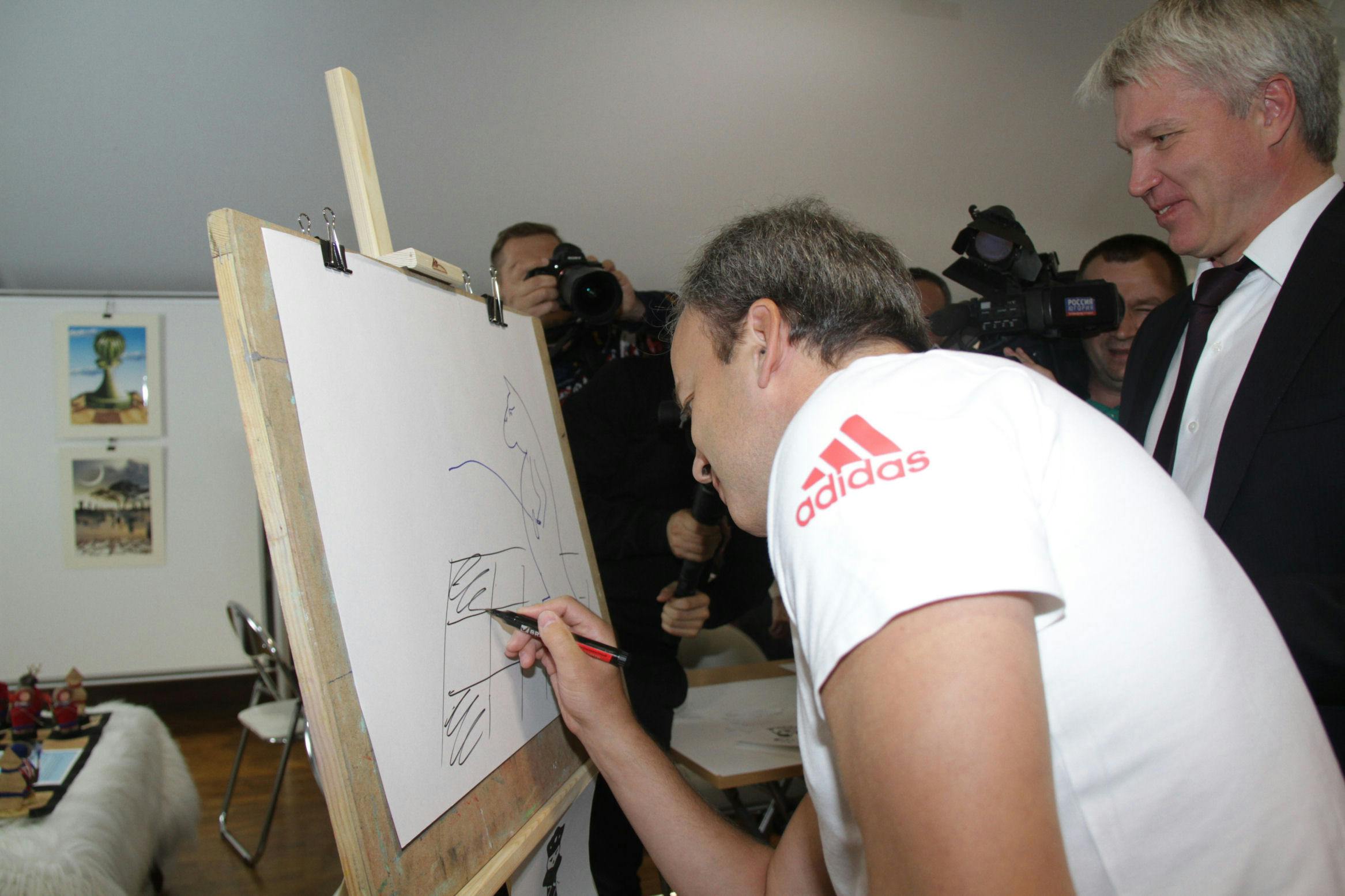
Dvorkovich and Kolobkov. Photo: Cathy Rogers
The World Cup venue, the Ugra Chess Academy, was opened in 2010 and is a large, futuristic building, with multiple classrooms and an impressive chess book library. Curiously, the playing hall, on the first level, is a surprisingly tight fit for 128 players, with barely enough room to squeeze between boards when a player stands up. However the room will become more than comfy when only 64 players begin playing in round two and spectators will be allowed into the playing hall; they were banned for the first three days for space reasons.
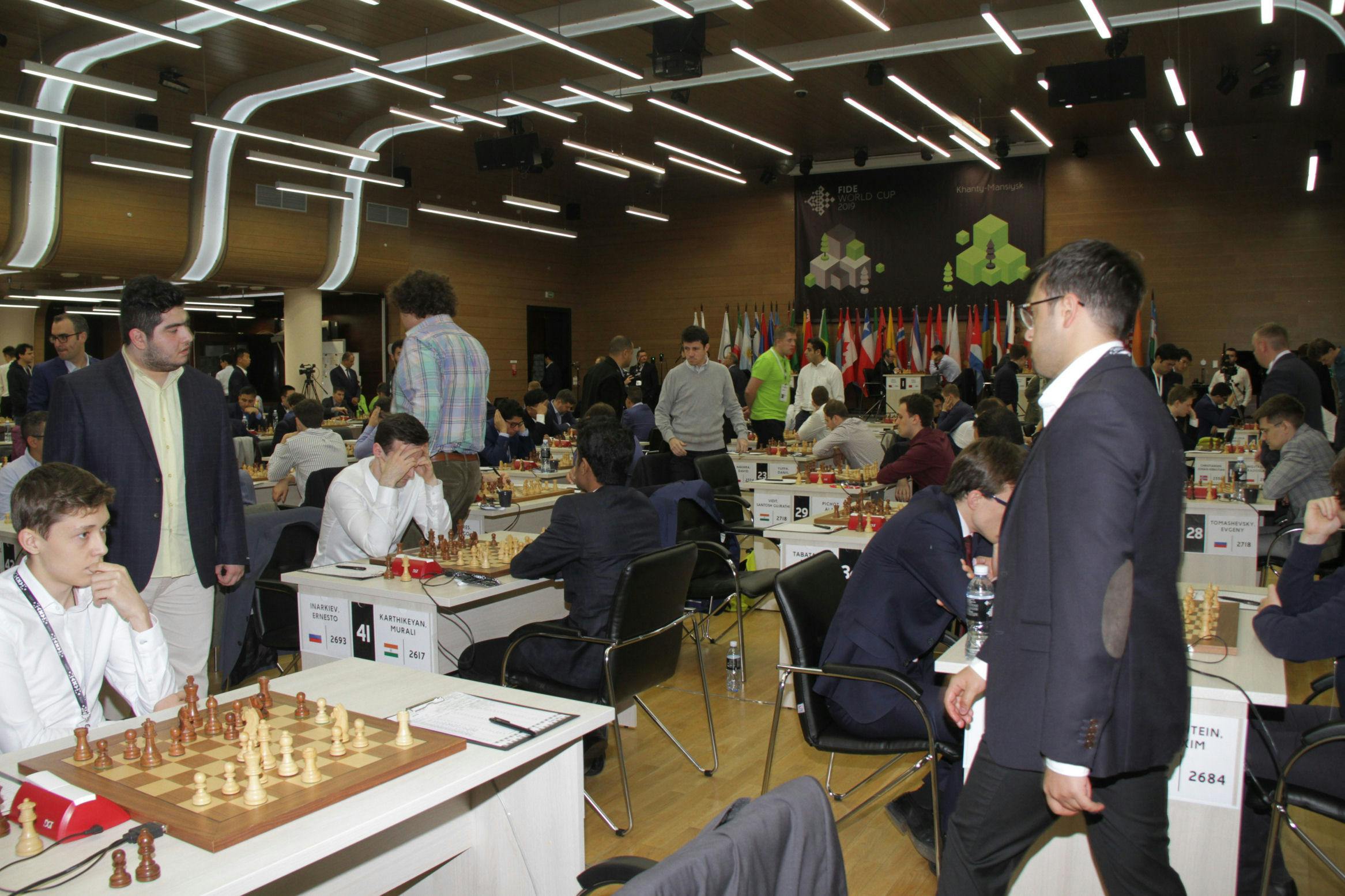
The crowded playing hall. Photo: Cathy Rogers
Security at the event is tight, with three personal and bag checks before a player can enter the hall. The first two checks are anti-terrorism rather than anti-cheating – the first entailing queuing outside the building – but neither seems too onerous, with an emphasis on hurrying everyone through rather than checking out why a particular Grandmaster caused the machine to buzz. However buzzing on entry to the playing hall would have rather more serious consequences. Russian army personnel guard the entrance to the Academy and the staircase to the playing hall.
The foyer of the Academy has television screens where spectators can watch the top games but it is also possible to sit in the commentary rooms and listen to Sergey Shipov (in Russian), or Alex Yermolinsky and Evgenij Miroshnichenko (in English) who provide the official online commentary alongside Elizbar Ubilava and Leontxo Garcia, who are also providing Spanish language commentary but without spectators. September is the changing of the seasons in Khanty-Mansiysk and the first day of the tournament coincided with the first hint of winter. (A fortnight earlier temperatures had been above 20 degrees Celsius.) The queues for the first security check on day one involved enduring cold weather and light rain, though the Academy, like every building in Khanty-Mansiysk, was well heated. The temperature did moderate over the following days and the rain stayed away from playing hours.
It should be noted that the early inhabitants of this inhospitable part of the world, the Khanty and Mansi people, are nowadays almost invisible in the city named after them. The region has three official languages but all signs are in Russian and two decades of frenetic building of high rise apartments, sports stadia and civic infrastructure, has left only a few reminders that residences made of wood were once universal in the town. In traditional Khanti culture, the hunting and killing of a big beast such as a bear, meaning food and clothes, was followed by days of celebration and song. However following an uprising by the Khantis in the 1930s, crushed, Soviet leader Josef Stalin banned all Khanti religious and cultural practices (including killing bears). The ban was lifted only two generations later.
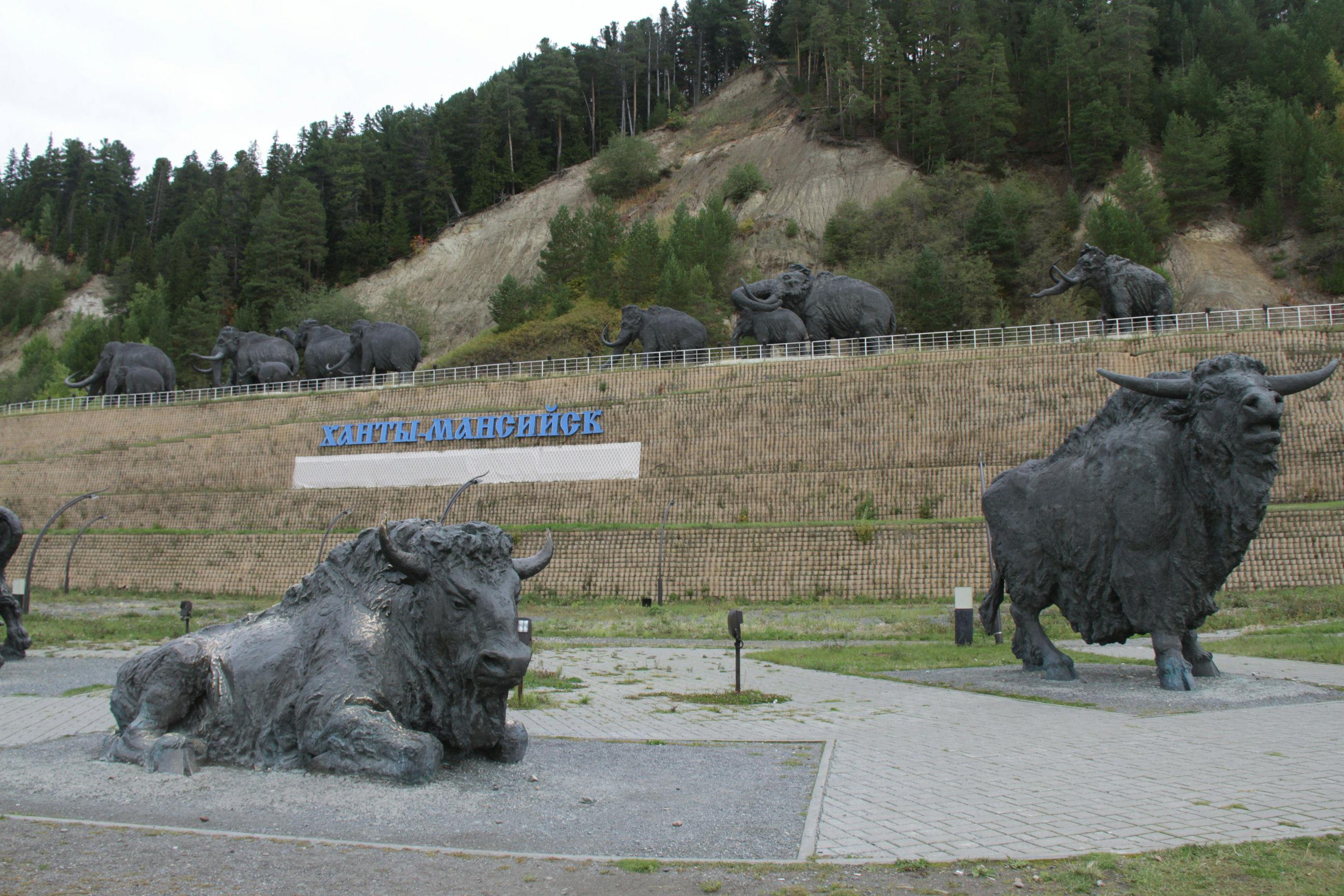
The literal big-beasts in Khanty-Mansiysk. Photo: Cathy Rogers
In Khanty-Mansiysk this week the big beasts have so far escaped capture, with the top ten seeds cruising through the first knock-out round; eight of the ten won 2-0 and none needed tiebreakers. The biggest mismatch was on board one: top seed – and the man currently favourite to challenge Magnus Carlsen for the world title next year – Ding Liren against Papua New Guinea’s Shaun Press, the lowest rated player ever to compete in a World Cup. Press, who is better known as an arbiter than a player qualified because the player who came first in the Oceania Zonal in Guam in February, Max llingworth, declined his invitation to compete. (Preparing for a wedding beats preparing for the Berlin Defence, apparently.)
Press, with plenty of luck as he himself admitted, had finished second in Guam, one of the weakest Zonal tournaments ever held – only one player rated over 2100 took part - due in large part to Guam’s inaccessibility. Kim Jong Un’s 2017 threats to nuke Guam may not have encouraged participation either.
As expected Ding won the contest 2-0, although the first game was at least hard-fought. The second was decided by a Press piece blunder.
https://lichess.org/study/j6iNRaAa/jqGtItxI
The highest seed to go out in the first round was the 16th, Pole Radosław Wojtaszek, who was crushed 2-0 by Johan-Sebastian Christiansen. The young Norwegian showed extraordinary guts by refusing a draw by repetition in the second game and playing for a win when a draw would put him through to the second round and guarantee him at least a $10,000 payday. Or perhaps $10,000 is just not a lot of money in Norway :) However the biggest shock of the first round was probably the defeat of Bu Xiangzhi, the Chinese Grandmaster who defeated Magnus Carlsen in the third round of the 2017 World Cup. Bu was beaten 2.5-3.5 after a rapid tiebreaker by his compatriot Xu Xiangyu, yet Bu could hardly claim to be unlucky since his 19-year-old opponent controlled most games and Bu only had chances in the 10 minute game which he ultimately lost.
https://lichess.org/study/j6iNRaAa/mLPIORhr
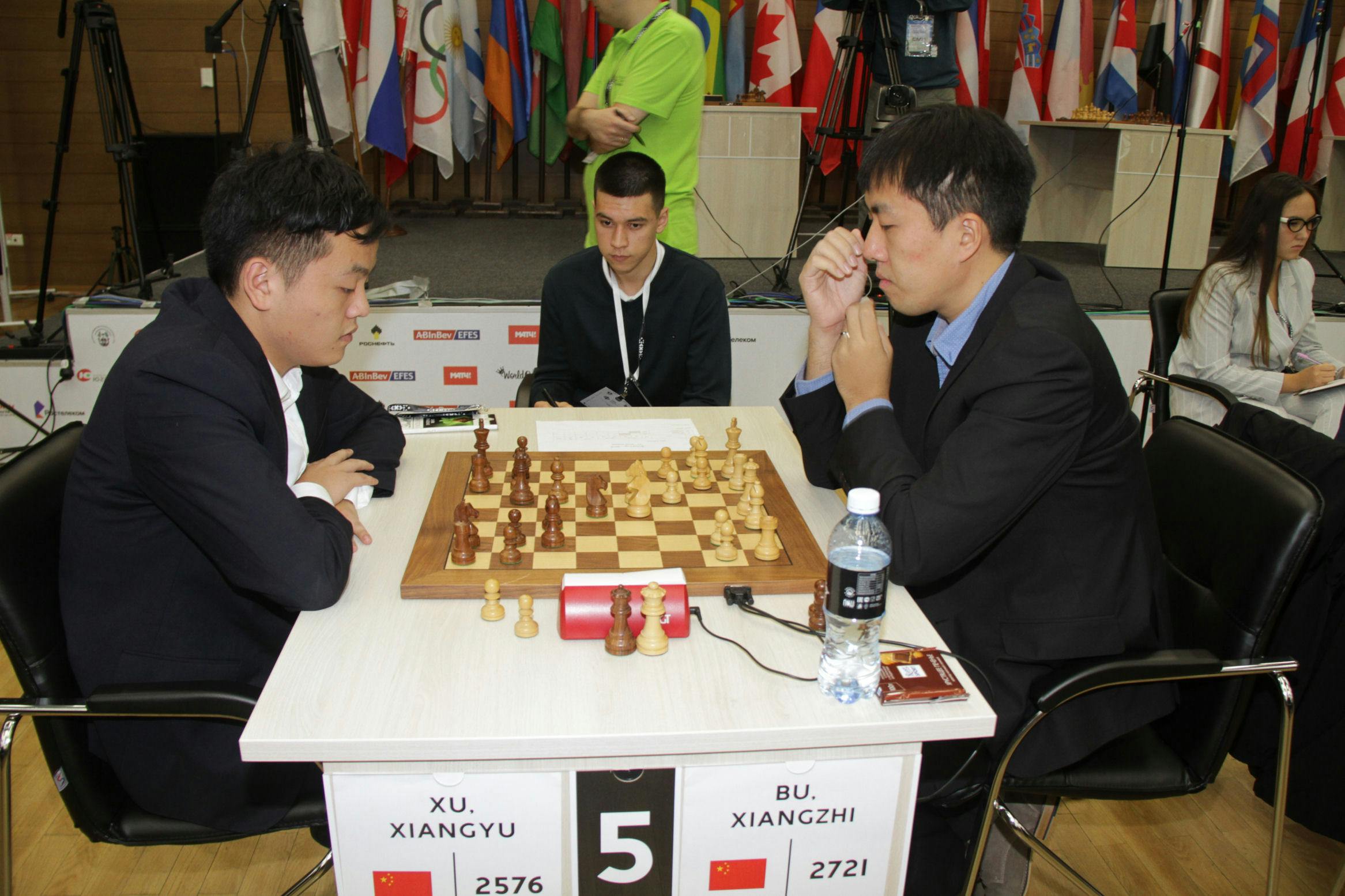
Bu and Xu. Photo: Cathy Rogers
Michael Adams was another who suffered a surprise defeat, 3.5-4.5, by the 20-year-old Indian Champion Aravindh Chithambaram in an epic struggle decided by two blitz games which both reached pawn endings.
https://lichess.org/study/j6iNRaAa/cvuxhmX8
https://lichess.org/study/j6iNRaAa/dkUlwQsf
In all, 15 underdogs triumphed in the first round, ending the tournament for other big names such as Navara, Ponomariov, Naiditsch, and Shankland. The US star suffered the most, as the following game extract shows.
https://lichess.org/study/j6iNRaAa/MuSGeOeI
Twelfth seed Yu Yangyi was lucky to escape the cull, leaving his Iranian opponent Ehsam Ghaem-Maghami with an open goal in the second tiebreak game.
https://lichess.org/study/j6iNRaAa/Qcj6hMN0
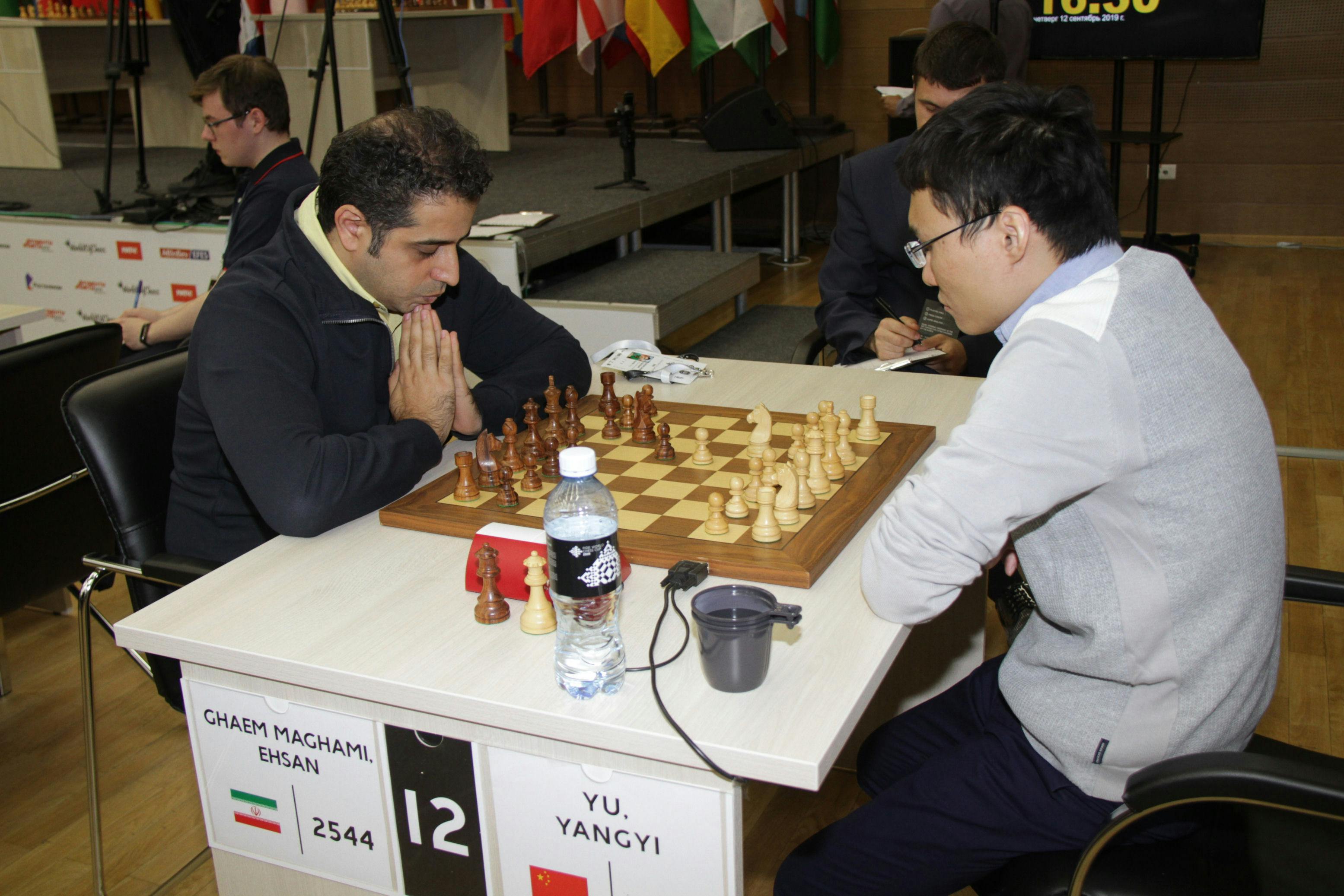
Yu and Ghaem-Maghami. Photo: Cathy Rogers
Ghaem-Maghami was told about his miss by a friend immediately after the game and admitted to being “destroyed” by the information and unable to play properly in the next two games. One notion destroyed by the first round in Khanty-Mansiysk was the concept of momentum. Five players bounced back from a first game loss to force tiebreakers and should have been feeling on top of the world. All five failed to progress. Predicting a winner at the World Cup after one round is a fool’s errand but from past knock-out winners it is clear that the winner will be the player who can combine making almost no mistakes over a three week tournament with luck, luck and more luck. 64 of those without that requisite luck are about to head home.
The World Cup games begin at 12.00pm Central European Summer Time and 6am US EST. Watch them all live on Lichess and stay tuned to our standard communication channels for details: